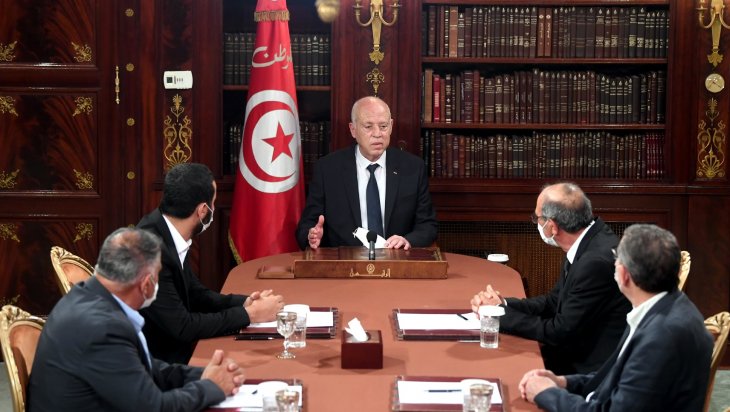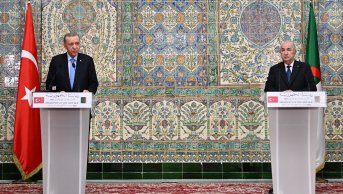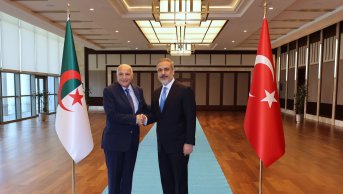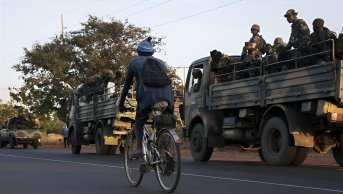Tunisia: What does President Kaïs Saïed Want?

Days have passed since the bold move by President Kaïs Saïed to freeze the parliament, firing his prime minister, Hichem Mechichi, who had the support of the coalition parties in the Parliament, such as the Ennahda party, which remains the leading political party in the country, despite all the critics. Later, in the middle of the week, President Kaïs Saïed fired the Minister of Defense, the Minister of Justice, and the national public TV director.
An authoritarian attempt or a power appetite?
On Wednesday, President Kaïs Saïed met with high-ranking military and security service officials at the presidential palace, Carthage Palace. A sign that made analysts raise more questions about the president’s decisions on July 26, establishing exceptional laws to lead in a context of exceptional circumstances which Tunisians are going through, such as a catastrophic socioeconomic situation, dire COVID-19 pandemic crisis management, and an institutional crisis.
What does President Kaïs Saïed want? The Tunisian president, during the 2019 presidential campaign that led to his flamboyant election, had shown his desire to go the extra mile and beyond the existing institutional set that he himself designed as a constitutionalist expert in 2014. He advocated giving power to the people. President Kaïs Saïed has decided to fully take executive power, appointing a new prime minister in the coming days. In his speech, the Tunisian president explained the exceptional nature of his decision, which was motivated by his action in order to save the state and maintain social stability in the country.
The president enacted a suicidal political move on the eve of Tunisia’s 64th anniversary of the republic’s foundation to fire the prime minister, to freeze the parliament’s acts, and remove all the MPs immunities at a time when the entire country is begging for COVID-19 immunity. As a result, President Kaïs Saïed does not have a political party or a solid electoral reservoir that he could rely on in parliament.
He is politically an “independent,” and a former constitutional law professor. Hence, he is using the military card, bringing the military into the thorny political arena, which will give him political leverage in the eyes of the anti-Ennahda camp in Tunisia and the anti-revolutionary axis and their minions in the region.
The UAE is the usual suspect
In his speech, President Kaïs Saïed vehemently denounced the “thugs” who are operating within Tunisian society and within the state institutions. “(…) We will not let anyone play with the state, and with the lives of Tunisians, using cash to destabilize the state’s affairs as if it were their property,” President Kaïs Saïed said. The message was sent to his sworn enemy without naming them. Yet, the ongoing trench war between the president and his political clan, supported by the axis of Paris-Cairo-Abu Dhabi, against House Speaker Rached al-Ghannouchi and his Ennahda Movement, has poisoned the political discourse and action in Tunisia.
The president and his bloc have summed up that their fight is against “political Islam” on the domestic level and in the region.
Thus, President Kaïs Saïed’s decisions and message go with the region’s governing mentality and old paradigm to oust democratically elected religious parties, similarly to those in Algeria and Egypt, provoking political instability and governing incompetency. His defenders at home and abroad argue that his actions were needed to protect Tunisia’s political process and progress. However, for Ennahda, the parallels to Algeria, Egypt, and virtually Turkey’s 1997 coup are obvious.
This brings us to the complex equation that has been echoing the dialectal relationship between the Islamist and the secular ideological fight on one hand, and the oligarchic regime on the other. This implies the country’s societal imperatives are politically constant and ethnically coherent. Yet, the outcome of the post-Arab uprisings generated a new paradigm, placing people in the middle ground between counter-revolutionary and radical dystopian groups, which is a national security alibi that authoritarian regimes and radical secular elites in the region have been using to crush any credible opposition to their thrones, like in Syria, Egypt, Sudan, and Algeria, before people in those countries rose up against the military and the oligarchic system.
The coup’s alibi!
President Kaïs Saïed mentioned that cash was distributed in neighborhoods to destabilize the Tunisian state and society. The president’s decision to enhance his constitutional power has aggravated the security situation. He applied Article 80 of the Constitution, but he forgot Article 79, which obliges him to address the MPs and the prime minister before any decision is taken, constitutional law experts and human rights activists in Tunisia have argued.
In fact, Article 80 of the constitution empowers the president to use his power in exceptional circumstances when an imminent threat could affect the national unity and state institutions functions. But before taking any decision, he must consult with the prime minister and house speaker, and the president of the constitutional court, which does not even exist yet, nor does it have a president. Nevertheless, the Tunisian president met instead with security and military officials. Thus, his unconstitutional actions gave the nature of a coup d’état through security channels, and not institutional ones as stipulated by Article 79 of the Constitution.
President Kaïs Saïed has not set the time frame for his decision to freeze the parliament acts and the use of the executive order. However, Article 80 of the Constitution refers to the return to normal functioning state institutions, which allows the parliament to meet in a parliamentary session during an “imminent” threat. In this case, the president cannot dissolve the parliament, so he could not dismiss the government. In this context of constitutional disorder, Article 80 of the Constitution, in which President Kaïs Saïed based his decisions on, defines a period of 30 days to extend the application of exceptional circumstances’ decisions.
A decade later, Tunisians feel that their dreams of a better life have evaporated. Politicians should watch what they wish for. A real hurricane is on the horizon which could implode the country’s political establishment — Tunisians have nothing to lose by this stance. Years have passed and Tunisian politicians are still struggling to implement a Constitutional Court to serve as a strong legal tool between the two state branches for a better checks and balances principle, and to form a credible national coalition government to tackle daily basic needs and demands of Tunisians.
Tunisia is now trapped between two ways of thinking: the deep division between the elite and the masses on one hand, and the radical secularists and the traditionalists on the other, a dilemma that has been striking the so-called Arab “secular” states. Consequently, this has evoked a political thought that has left Arab states perplexed. Unlike in Turkey, where there is a deep sense of positive secularism (laïcité), democracy has become a red line, as seen in the example of the July 15, 2016 failed coup attempt.
Today, Tunisia has two choices: either take the road that millions of Turks have taken on the night of July 15, 2016, or surrender like the Egyptians have towards el-Sisi’s coup of July 3, 2013. According to the latest developments, the latter seems more likely to happen with less collateral damage.
There is, however, a thin comparison to the February 28, 1997 constitutional coup against the Refah Party and its charismatic and visionary leader, Professor Necmettin Erbakan. After all, President Kaïs Saïed’s coup would enhance the democratic process instead, like the putschist “constitutionalists” did in Turkey. Politics is indeed full of irony.
This article was published in MENA Affairs website under the title of “Tunisia: What does President Kaïs Saïed want?” on July 29, 2021.







